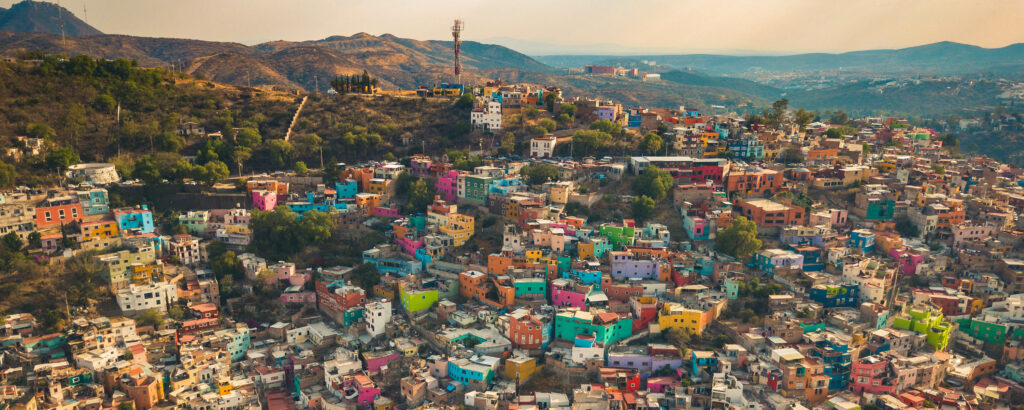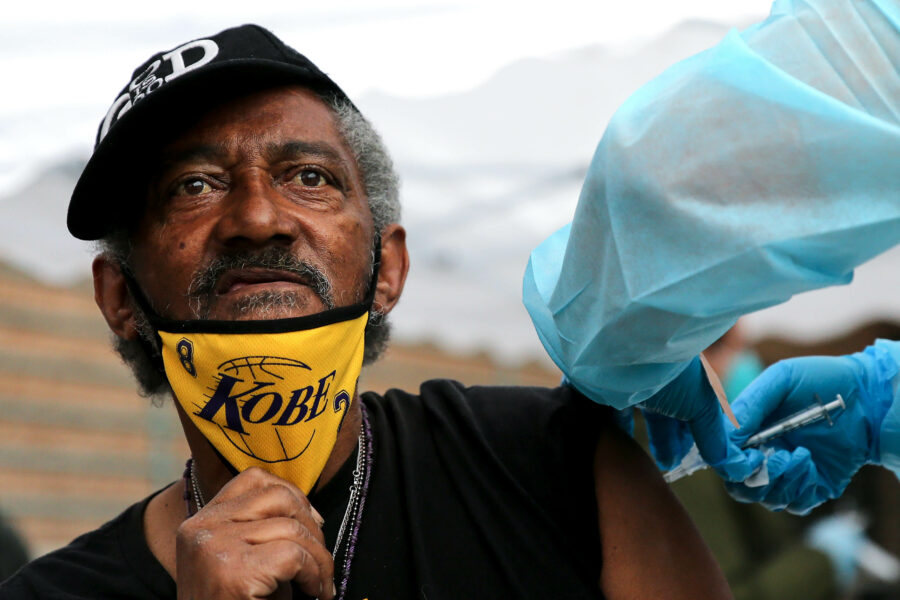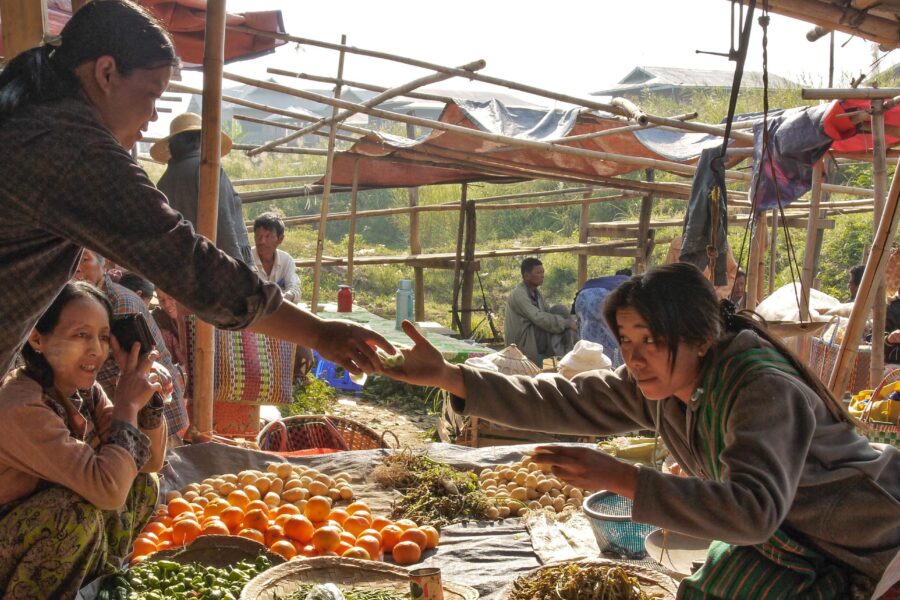Building a more equal world
Coronavirus threatens to push already damaging levels of inequality to new extremes. Post-pandemic, we must go beyond lifting people out of poverty and tackle the deeper structural causes of inequality at all levels
Economic development — Global

The coronavirus crisis swept across a world that was already extremely unequal. A world where a tiny majority of over 2,000 billionaires, mainly men, have more wealth than they could spend in a thousand lifetimes. A world where nearly half of humanity was forced to scrape by on less than $5.50 a day. A world where the richest 1% has consumed twice as much carbon as the bottom 50% for the last quarter of a century, driving climate destruction. A world where the growing gap between the rich and poor both built on and exacerbated age-old inequalities of gender and race.
According to the World Inequality Report 2018, between 1980 and 2016 the richest 1% received 27 cents of each dollar from global income growth. This is more than twice that of the bottom 50%, who only secured 13 cents of every dollar. If the economic system is left to distribute the fruits of growth so unevenly, it will never eliminate poverty. It is also completely unsustainable.
Analysis of the origins of the wealth of the world’s richest shows how much of it is unearned. Oxfam has calculated that two thirds of billionaire wealth only exist because of inheritance, economic monopolies, and crony connections to government. Inheritance simply creates a new aristocracy, and monopolies and cronyism are signs of a dysfunctional economy, not a functional one. It’s an economy that makes life more expensive for ordinary people.
This inequality is the product of a flawed and exploitative economic system, which has its roots in neoliberal economics and the capture of politics by elites. It has exploited and exacerbated entrenched systems of inequality and oppression, namely patriarchy and structural racism, ingrained in white supremacy. These systems are the root causes of injustice and poverty. They generate huge profits accumulated in the hands of a white patriarchal elite by exploiting people living in poverty, women, and racialized and historically marginalized and oppressed communities around the world.
Inequality’s harm
Inequality has multiple impacts on humanity and human progress. The International Monetary Fund (IMF) recently found that in countries with higher income inequality, gaps between women and men in health, education, labor market participation, and representation in institutions like parliaments are also higher. The gender pay gap, where men earn more than women, was also found to be higher in more unequal societies.
Those living in unequal societies are less happy, less healthy, less educated, live with more crime and violence, and live shorter lives. It leaves many more people living in fear and many fewer in hope.
In the first months of the pandemic, a stock-market collapse saw billionaires, who are some of the biggest stockholders, see dramatic reductions in their wealth. Yet this setback was short lived. Billionaires had recovered almost all the money they had lost within eight months. Their fortunes have continued to increase since then.
At the same time that the greatest economic shock since the Great Depression began to bite, the virus saw hundreds of millions lose their jobs and face destitution and hunger. This in turn is set to reverse the decline in global poverty we have witnessed over the last two decades. It is estimated that the total number of people living in poverty could increase by between 200 and 500 million. The number of people living in poverty may not fall back to its pre-crisis level for over a decade.
The virus exposed the fact that most people on Earth live just one paycheck away from penury. They live on between $5 and $10 a day. They rent a couple of rooms for their family in a slum. Before the crisis hit, they were just managing to get by, and starting to imagine a better future for their children. They are the taxi drivers, the hairdressers, the market traders. They are the security guards, the cleaners, the cooks. They are the factory workers. The virus has shown us that for most of humanity there has not been a permanent exit to poverty and insecurity. Instead, because of inequality and the hoarding of the proceeds of growth by the richest, at best there has been a temporary and deeply vulnerable reprieve.
While it is too soon to have the full picture, most initial studies point to a significant increase in inequality. The IMF, World Bank and Organisation for Economic Co-operation and Development have all expressed concern that, left unchecked, the coronavirus will drive up inequality. The fact that the virus has impacted economically on every country on the planet at the same time, means it is likely that almost every nation will see an increase in inequality. That is something never seen before in history.
This view is supported by Oxfam’s survey of 295 economists from 79 countries around the world, where 87% of them projected that there would be an increase or major increase in inequality in their country in the next two years.
Governments face a choice
An increase in inequality is almost certain. Yet the extent of this increase, and the speed with which it is reduced and greater equality achieved, is in turn the choice of governments across the world. The World Bank has shown that if leaders choose to act to reduce inequality, we could return to pre-crisis levels of poverty within three years. Conversely, if governments allow inequality to increase, the number of people living in poverty by 2030 will still be higher than it was before the virus hit. If governments seek to reduce inequality, 900 million fewer people will be living in poverty by 2030 than if inequality is left to increase.
In 2015, all governments agreed for the first time to reduce inequality, as Sustainable Development Goal (SDG) 10. This was a historic moment. It was also agreed that the fight must be against inequality in all its forms. The gap between rich and poor undermines progress on education, health, and gender equality. More equal societies are societies that are more likely to be able to meet all of the SDGs.
Since then, progress in the fight against inequality has been painfully slow. Oxfam’s Commitment to Reducing Inequality index (CRI), which surveys 158 countries, shows most governments are failing to set clear goals and put plans in place to reduce the gap between rich and poor.
The good news is that this inequality is not inevitable. Clear, concrete steps can be taken by governments of all income levels to reduce inequality. South Korea has increased taxation of the richest, increased the minimum wage dramatically and introduced universal social protection. Sierra Leone has introduced free secondary education and increased taxation of mining corporations.
Some governments have also taken dramatic steps to protect their populations in response to coronavirus. Bolivia has scaled up cash transfers by 322% to cover 97% of the population. Ecuador and Argentina have increased taxation on the richest to help pay for the recovery.
To reduce inequality, governments must dramatically improve their efforts on progressive spending on key public services like health, education, and social protection. They should increase progressive taxation, including taxation of wealth. They should increase workers’ pay and protection. These measures should be done as part of national inequality reduction plans under SDG 10, setting clear, time-bound targets to reduce the gap between rich and poor.
Sadly these countries are the exception, not the norm. The majority of nations are simply failing to do what they can do to reduce inequality.
Coronavirus offers us a vital opportunity to imagine and build a more equal world. We must not waste it.





